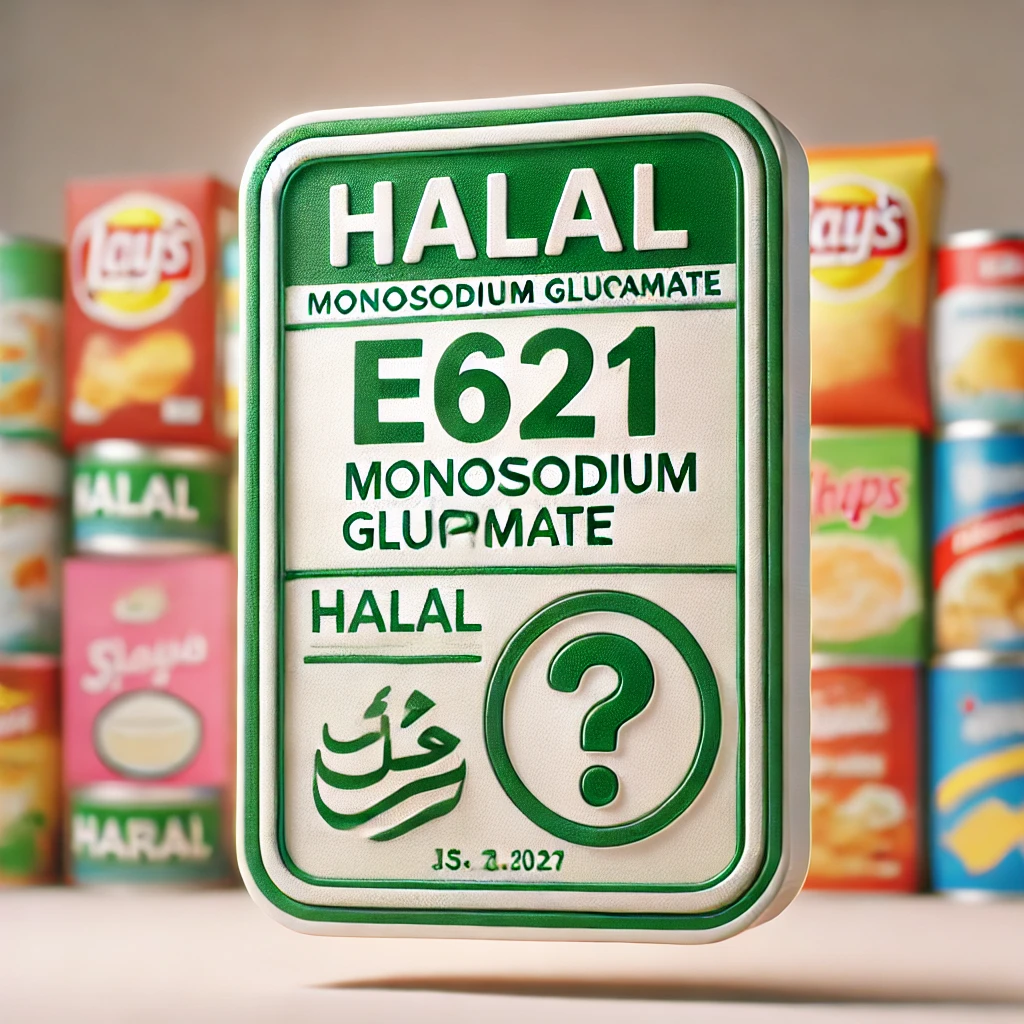E621 Halal or Haram: Everything You Need to Know
Food additives are common in modern diets, and many people wonder about their halal status. One such additive is E621, or monosodium glutamate (MSG). It enhances the taste of food but raises questions among Muslims about whether it is halal or haram. This article explores its sources, production, and Islamic ruling to provide clarity.
What is E621?
E621, also known as monosodium glutamate (MSG), is a popular flavor enhancer. It is used in processed foods, snacks, and restaurant meals. MSG improves taste by adding umami, the fifth basic taste.
Is E621 Halal or Haram?
The halal status of E621 depends on its source and production process. Some types of MSG are halal, while others may not be. Let’s explore this in detail.
How is E621 Made?
MSG is produced in different ways:
- Fermentation of Plant-Based Ingredients – Sugar cane, molasses, or starch are used. This type is halal.
- Extraction from Animal Sources – Enzymes from animals may be used. If the animal is not slaughtered according to Islamic law, the MSG is haram.
- Synthetic Production – Laboratory-made MSG is generally halal.
Halal Certification of E621
To be sure that MSG is halal, look for halal certification on food packaging. If there is no certification, check the manufacturer’s website or contact them directly.
Foods That Contain E621
MSG is found in many processed foods, including:
- Instant noodles
- Chips and snacks
- Canned soups
- Processed meats
- Seasonings and spice blends
- Fast food
Does E621 Have Health Risks?
While MSG is approved by food safety authorities, some people may experience side effects, such as:
- Headaches
- Nausea
- Dizziness
- Sweating
These reactions are known as MSG sensitivity. However, scientific studies have not confirmed any severe health risks.
Islamic Perspective on E621
Islamic scholars have different views on MSG. The source of production determines whether it is halal or haram. If MSG is derived from halal sources, it is permissible. If obtained from non-halal animals, it is haram.
How to Identify Halal E621
To ensure the E621 in your food is halal:
- Look for a halal certification logo.
- Check ingredients for animal-based sources.
- Contact the manufacturer if unsure.
You may also read: Why Is Linzess Dangerous?
Conclusion
The question “Is E621 halal or haram?” depends on how it is made. MSG from plant-based or synthetic sources is halal. If it comes from non-halal animal sources, it is haram. Always check food labels and certification to ensure compliance with Islamic dietary laws.

